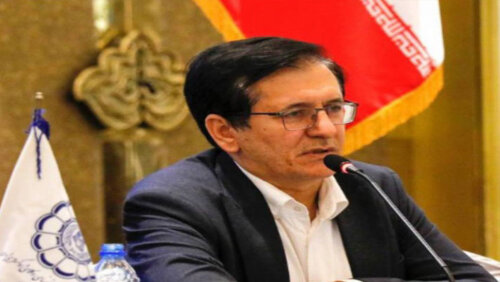Best Domestic Violence Lawyers in Shiraz
Share your needs with us, get contacted by law firms.
Free. Takes 2 min.
Free Guide to Hiring a Family Lawyer
List of the best lawyers in Shiraz, Iran
About Domestic Violence Law in Shiraz, Iran
Domestic violence is a significant concern globally, including Shiraz, Iran. In Iran, domestic violence encompasses various forms of abuse within familial settings. The legal system recognizes domestic violence as an infringement of the rights and safety of individuals, particularly affecting women and children. Laws concerning domestic violence are part of broader family protection and criminal laws. However, cultural sensitivities and stigma often make reporting and addressing such cases challenging. As local authorities and organizations work towards better protection and support mechanisms, understanding your legal rights and options is crucial for anyone facing domestic violence.
Why You May Need a Lawyer
There are numerous situations where someone experiencing domestic violence may require legal assistance:
- Navigating the legal system can be complex, especially for victims who may be traumatized. A lawyer can provide guidance and support throughout the process.
- Filing a restraining order or protection order to ensure personal safety often requires legal expertise.
- Lawyers can help victims understand their rights under the law and pursue legal justice against their abusers.
- Assistance in child custody or divorce proceedings is essential, particularly when domestic abuse is involved.
- Legal professionals can communicate and negotiate with law enforcement and judges on the victim's behalf.
Local Laws Overview
The legal framework regarding domestic violence in Shiraz, Iran, is integrated into broader family and criminal laws. Key aspects include:
- Iran's Penal Code covers acts of violence and harassment, applicable to domestic situations.
- Family Protection Laws offer some degree of protection for victims, though these laws may have limitations and may not fully address domestic violence.
- Protective orders can be issued by courts but require substantial evidence and often legal representation to pursue effectively.
- Child protection laws also come into play if children are endangered by domestic violence situations.
- Ongoing reforms aim to strengthen the legal response to domestic violence, providing more robust legal remedies and supporting victims' rights.
Frequently Asked Questions
What constitutes domestic violence under Iranian law?
Domestic violence refers to physical, emotional, psychological, and sometimes financial abuse within familial settings, affecting partners, children, or other family members.
Can I obtain a restraining order in Shiraz?
Yes, it is possible to obtain a protective or restraining order, but it generally requires legal proceedings and evidence of the threat or act of violence.
Are there shelters or safe houses for victims of domestic violence in Shiraz?
While limited, there are some shelters and safe spaces available for victims seeking refuge from violence, often coordinated by governmental bodies or NGOs.
How can a lawyer assist me in a domestic violence case?
A lawyer can guide you through the legal system, help prepare legal documents, represent you in court, and negotiate with authorities to ensure your safety and rights are upheld.
Is it possible to file anonymously when reporting domestic violence?
While you can report domestic violence incidents confidentially, completely anonymous reporting might be challenging due to the need for investigation and legal proceedings.
What proof do I need to pursue a case of domestic violence legally?
Proof can include medical records, witness accounts, text messages, calls, and any evidence of abuse or threats.
Are there specific rights for children in domestic violence cases?
Children's welfare is paramount in legal proceedings, with steps taken to protect their physical and mental wellbeing during domestic violence cases.
Do I have to press charges to get legal protection?
Not necessarily. Seeking legal protection, like a restraining order, doesn't always require pressing criminal charges against the abuser, though it may help strengthen your case.
What should I do if I face domestic violence while being a foreign national in Shiraz?
If you're a foreign national, reach out to your embassy or consulate, seek legal advice locally, and use available resources similar to those for Iranian nationals.
How long does it take to obtain legal protection after reporting domestic violence?
This varies based on the case complexity, evidence availability, and court schedules, but emergency protection can sometimes be expedited.
Additional Resources
For those seeking assistance, several organizations and government bodies offer support:
- The Iranian Legal Assistance Center provides legal support for domestic violence victims.
- Local NGOs offer counseling, shelter, and legal advice for individuals and families.
- Police and family courts can offer guidance on legal protections and processes available for victims.
Next Steps
If you or someone you know is experiencing domestic violence in Shiraz, consider taking the following steps:
1. Document any evidence of abuse safely and securely.
2. Reach out to a legal professional experienced in domestic violence cases for guidance and support.
3. Contact local authorities or legal aid bodies to understand your rights and options.
4. Seek support from NGOs or shelters for immediate safety and guidance on overcoming legal and personal obstacles.
5. Rely on community and family support networks for additional emotional and practical support throughout the process.
Lawzana helps you find the best lawyers and law firms in Shiraz through a curated and pre-screened list of qualified legal professionals. Our platform offers rankings and detailed profiles of attorneys and law firms, allowing you to compare based on practice areas, including Domestic Violence, experience, and client feedback.
Each profile includes a description of the firm's areas of practice, client reviews, team members and partners, year of establishment, spoken languages, office locations, contact information, social media presence, and any published articles or resources. Most firms on our platform speak English and are experienced in both local and international legal matters.
Get a quote from top-rated law firms in Shiraz, Iran — quickly, securely, and without unnecessary hassle.
Disclaimer:
The information provided on this page is for general informational purposes only and does not constitute legal advice. While we strive to ensure the accuracy and relevance of the content, legal information may change over time, and interpretations of the law can vary. You should always consult with a qualified legal professional for advice specific to your situation.
We disclaim all liability for actions taken or not taken based on the content of this page. If you believe any information is incorrect or outdated, please contact us, and we will review and update it where appropriate.










